
Photo: Fundación Albatros
Photo: Fundación Albatros
MAR Fund’s Technical Director participated in the LXVIII Extraordinary CCAD Ministers Council Meeting, the Liaison Officers meeting and in the Second Regional Environmental Congress of CCAD, which took place on April 18 to 20, in Belize City. During these meetings, the Protection of maritime resources in Central America III (Phase III) project and its progress was presented.

Objective: To consolidate a participatory national and regional habitat and biodiversity conservation strategy that ensures the sustainability of fisheries, the resilience of coral reef ecosystems, and the governance of Cayman Crown.
Progress to date:
- Three workshops with 93 community members, in which conservation objects were prioritized, threats to resources and ecosystems identified and conservation and management strategies proposed, took place.
- FUNDAECO provided support to the Directorate of Fisheries and Aquaculture Regulations (DIPESCA) to carry out a workshop on conflict resolution with 19 participants.
- Seven patrols were implemented: nine boats inspected, no illegal actions observed.
- Five environmental education workshops were carried out, with 209 people from the communities engaged.
- Two megafauna monitoring took place in adjacent areas of Cayman Crown, one stingray and a group of three dolphins were observed.

Photo: Guillermo Gálvez/FUNDAECO
Objective: Conserve and restore 254 ha of tropical forest and mangrove ecosystem in communities of the Sarstún River watershed, promoting sustainable strategies with the environment, contributing to the resilience of the ecosystems of the Mesoamerican Reef System, through community governance mechanisms.
Progress to date:
- Six people from the communities were selected to implement agroforestry systems and participated in two workshops on this topic.
- The documentation for six selected areas, each of 22.5 ha of tropical forest and mangrove ecosystem, including the management plan, was presented to the Office of Control of State Reserve Areas (OCRET). Once approved, it will be presented to the National Forest Institution (INAB), to be part of their incentives program.
- Two surveillance patrols took place: no illegal activities observed.
- Thirty families were selected for the establishment of family gardens.
- Ten energy-saving stoves were purchased and given to 10 families.
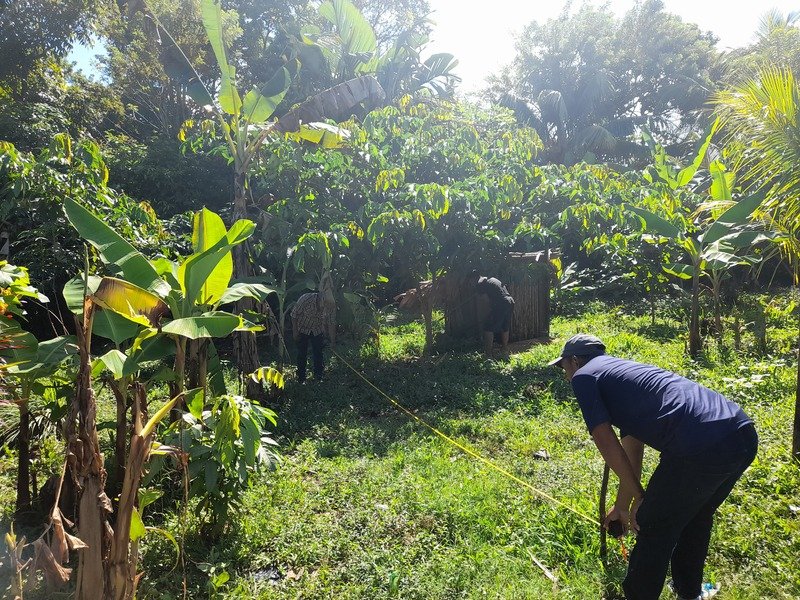
Photo: EcoLogic
Objective: To strengthen the financial sustainability of SACD through investments in its Business Arm and the establishment of a River-to-Reef (R2R) academic expedition package, creating direct employment opportunities in the tourism sector for low-income stakeholders and reducing overall community reliance on fishing.
Objective: By the end of 2025, appropriate governance practices for natural resources, local ventures, and resilience strategies to climate change ensure the protection of 255.85 ha of tropical forest in the RSMUA and an improvement in the living conditions of the community members.
Objective: To support the management, conservation, protection, and restoration of natural ecosystems of the MAR and the social development of local communities by strengthening the business model of eight innovative enterprises, improve their impact acumen, and prepare them to access new, better markets and financing opportunities in 12+ months.
Belize Audubon Society (BAS), Belize
Sarteneja Alliance for Conservation and Development (SACD), Belize
Turneffe Atoll Sustainability Association (TASA), Belize
Objective: To provide critical operation support to at least three MPA co-managers in Belize that are still being negatively affected by the economic impacts of COVID-19.
Progress to date:
Three MPA co-managers were supported with emergency funds to help them cover operational costs (salaries, utilities, rent, equipment and maintenance of equipment) and thus decrease the financial gap created by the COVID-19 pandemic.
Photo: Fundación Albatros
Honduras – Belize
Objective: Identify sites where spawning aggregations of deep-water fishes occurs, along with the timing of these events using standardized methods. Age validation will determine the age-structure of the spawning populations, and genetic analysis will determine how gene flow and larval transport affect distribution.
Progress to date:
- In October 2022, the hydrophone and the Baited Remote Underwater Video (BRUV) were tested in the field.
- Three hundred and eighty-eight otoliths from cardinal snapper (Pristipomoides macrophthalmus) have been sectioned to define the age of the fish, and 30 selected for age validation using radiocarbon dating.
- MarAlliance has established collaboration with international scientists to use radiocarbon dating to validate cardinal snapper age and with Florida Tech University to determine genetic connectivity of silk snapper.

Photo: MarAlliance
Objective: To develop an educational game about ocean conservation for the Mesoamerican Reef Region.
Progress to date:
- The game content has been completed and launched jointly by TNC, WWF, HRI and MAR Fund during April 2023. It is available in English and Spanish and can be used with Windows PC Computer, and on Steam, or downloaded as an App from Apple Store and Google Play for use on most phones or tablets.
- www.findthewhales.com
- The game consists of four quests designed each one by each partner. MAR Fund quest focuses on protecting fish spawning aggregations.

Objective: Characterization of FSA of Cayman Crown and provide initial management for Cayman Crown MPAs in Belize.
Progress to date:
- The new enforcement team commenced working with a training to ensure the effective management of Cayman Crown.
- TIDE provided fuel to the Belize Coast Guard (BCG) to conduct patrol activities at Cayman Crown. Six gill nets were retrieved from the reef.
- In January, West Bezel Fisher Marker and The Jewel Wall, FSA sites, both within the Cayman Crown reef, were monitored. They observed 24 finfish species, including four grouper species, four snapper species, and five Jack species and Nassau and tiger groupers as gravid at both sites.
- TIDE presented “The Cayman Crown Reef” at IMPAC 5 congress From 3-9 February 2023 in Vancouver.

Objective: Provide management and zoning recommendations for the Cayman Crown and initial management funding for Cayman Crown with stakeholders in Guatemala.
Progress to date:
- The technical roundtable integrated by CONAP, DIPESCA and FUNDAECO was established to facilitate effective coordination among stakeholders of the Guatemalan Caribbean.
- FUNDAECO supported DIPESCA in the implementation of six governance roundtables focused on snook, shrimp, anchovy and lobster.
- Significant progress has been made with the elaboration of the Diagnosis of the coastal marine zone of the Punta de Manabique Wildlife Refuge.
- Eight environmental education workshops were implemented in Sarstún Multiple Used protected area and Río Dulce National park with the participation of 315 students and fishermen.

Objective: Consolidation of the national action plan for the control of Lionfish and the creation of the local committee in the Peninsula, Mexican Caribbean and Gulf of Mexico region.
Progress to date:
- The “Monitoring Committee for the implementation of the National Action Plan for the management and control of Lionfish in Mexico” was established, integrated by representatives from government, academia, research and civil society organizations.
- The National Action Plan for the management and control of lionfish in Mexico was updated and consolidated.

Photo: Amigos de Sian Ka’an
Photo: Fundación Albatros
Objective: Implement cost-effective insurance to cover hurricane risk to the MAR and enhance resilience of the local beneficiaries who depend on the reef for their livelihoods, food security, and protection from coastal hazards.
Progress to date:
- MAR Fund and WTW work together with authorities of the MAR to expand the insurance coverage and response capacity to additional sites in the Region.
- The parametric structure and coverage for eleven reef sites in the MAR, for the term 2023-2024, is advancing.
Objective: Enhance institutional capacity to mitigate the impacts of hurricanes in coral reefs in the MAR.
Progress to date:
- In February, a workshop was conducted in Puerto Barrios to train the Reef Response Coordinating Committee for the Caribbean in Guatemala in the Early Warning and Rapid Response Protocol and in the elaboration of the emergency response plan for the reef sites covered by the insurance[1].
- The workshop was conducted by MAR Fund with the support of The Nature Conservancy. A total of 20 participants from 14 institutions received the training.
[1] The execution of the MAR insurance programme shall not have any effect with respect to, or in connection with, any sovereignty claims over any territory (land, insular and maritime) claimed by the Republic of Guatemala and/or Belize; nor shall it have any effect over the rights and/or claims of either country over such territory.

Photo: Claudia Ruiz/MAR Fund
- In March, the emergency reef response brigade training was held in Puerto Barrios, Guatemala. A total of 19 participants were trained as reef responders for the reef sites in the Caribbean of Guatemala.

Photo: MAR Fund
- In April, a call for applications for the emergency response brigades training in Honduras was launched. The training will take place in Roatan, Honduras from the 12 to 16 of June, 2023.
- A total of four workshops were held with the Reef Response Coordinating Committees of Honduras to elaborate and validate the emergency response plans for three sites in Honduras.

Photo: Zara Guifarro/ MAR Fund
Mexico
Objective: Restore the reef ecosystem and the ecosystem services it provides, through restoration techniques and monitoring, with the collaboration of the local community to ensure the sustainability of the project.
Progress to date:
- Ten maintenance campaigns have been implemented in the Acropora palmata and Acropora cervicornis nurseries and restoration sites. Maintenance activities focused on reinstallation of lines, cleaning and relocation of fragments.
- Three HOBO-type sensors were placed at three restoration sites: Media Luna, Las Redes and Bahía de Akumal. The sensors will continuously record temperature and light incidence.
- Thirteen coral spawning monitoring campaigns were carried out and gametes of six species (Acropora palmata, Acropora cervicornis, Orbicella annularis, Orbicella faveolata, Pseudodiploria strigosa, Diploria labyrinthiformis) were collected to perform assisted fertilization and increase genetic variability and coral resilience.

Photo: Baruch Figueroa/CEA
Mexico
Objective: Repopulate in a year, four reefs with coral species at risk to fully promote the rehabilitation of ecosystem services for the benefit of the Cozumel community, involving the active participation of key stakeholders in raising awareness and mitigation of impacts to the reef.
Progress to date:
- Water quality, coral cover, fish and invertebrates biodiversity, were assessed at four coral restoration sites in Cozumel.
- More than 300 donating colonies were identified for the next coral restoration season through coral monitoring campaigns.
- Fifteen people from the Cozumel community were trained in coral restoration techniques and monitoring its effectiveness, through four theoretical and one practical sessions.
- Three conservation talks were given to the Cozumel community, with 32 participants.
- Two meetings were held with the social and private sectors of Cozumel with the participation of 47 volunteers.

Photo: Feliz V./FCC – CONANP
Objective: Generate capacities on coral restoration to improve the health of the reef ecosystem of the island of Guanaja.
Final results:
- Seven staff members of BICA (five women, two men) were trained in Placencia, Belize, at the Fragments of Hope (FoH) facility. The training consisted in learning about the coral restoration methodologies implemented by FoH, such as coral nurseries using table structures with Acropora cervicornis and micro-fragmentation for the restoration of Acropora palmata.
- This training will contribute to improving the results in coral restoration in the Bay Islands National Marine Park. The new techniques will strengthen BICA’s coral restoration efforts, as well as upscale all coral restoration projects in the protected area.

Photo: BICA – Guanaja
Mexico
Objective: By the end of 2023, in synergy with regional and local stakeholders, the resilience of the reef is increased through novel techniques of massive coral repopulation. The efficiency of the restoration is evaluated through systematic monitoring and the organic vinculation of the local community is strengthened under a comprehensive strategy of regenerative tourism to ensure the sustainability of the project.
Belize
Objective:To train stakeholders to respond to SCTLD and determine whether stakeholder treatment, monitoring reef status indicators and SCTLD disease prevalence at sites, and reporting of SCTLD with varying visitation, is an effective strategy response to SCTLD.
Photo: Fundación Albatros
The Belize Marine Fund (BMF) supports projects through two programmatic windows 1) the Targeted Grants Program and 2) the Small Grants Program. The projects supported by these programs have been guided by those priority areas of focus established in the BMF’s Strategic Plan and in consultation with the BMF Steering Committee.
Objective: To strengthen the financial sustainability of SACD through investments in its Business Arm (SACD Green Ltd.) and in Sarteneja, supporting alternative livelihoods for Corozal Bay Wildlife Sanctuary (CBWS) Stakeholder communities (primarily Sarteneja) through increased visitation to the area, increasing employment opportunities in the tourism sector and reducing community reliance on fishing.
Progress to date:
- Contractor hired to develop the Tourism Expedition Hosting Facility (TEHF) in January 2023.
- Facility now near completion and is expected to be finalized by June 2023.

Photo: SACD
Objective: To raise national and international awareness, through an original documentary film, of the efforts being undertaken by women leaders from various walks of life to preserve Belize’s Barrier Reef Reserve System and to inspire both local and international audiences to take action to support these efforts.
Progress to date:
- Expedition to Belize executed in May 2023 to wrap-up filming and production, and commence post-production activities.
Objective: To implement research, education, and conservation actions on behalf of the endangered Antillean manatee to garner protection for the species and its critical habitats.
Final Results:
- Collected 192 water quality samples in all three study sites (Belize River, Southern Lagoon, and Placencia Lagoon).
- Installed three “Slow Speed – Manatee Area” signs at three manatee resting holes in the Belize River.
- Installed two solar, WIFI, surveillance cameras at the entrance and 4.35 miles up the Belize River) to help monitor boat traffic in real time.
- Removed two gill nets, one from the Belize River, and the other a 500ft gillnet confiscated from the Southern Lagoon in collaboration with the Belize Coast Guard.
- Engaged approx. 225 students via school presentations and summer camps in Belize City, Placencia and Independence and Gales Point.
- Developed summary document entitled Recommendation for the Protection of the Lower Belize River.

Photo: CMARI

Photo: CMARI
Objective: To assist fishery managers and fishers in Belize to prioritize monitoring and conservation of SPAGs as a key component of climate-resilient fisheries management. Ensuring the health and productivity of Belize’s marine ecosystems and SPAGs, supporting thriving, climate-resilient finfish fisheries and fishing communities.
Progress to date:
- Completed the review and update of the SPAGs survey protocol. Key updates were to include protocols for laser sizing and temperature loggers. The protocols now align well with the MAR Fish Project and efforts to standardize data collection regionally.
- Conducted 13 SPAGs dive surveys between January – February 2023. This included 9 dives at Maugre Caye and four dives at Dog Flea Caye. The dive team estimated as many as 2,300 Nassau groupers at Maugre Caye during the January dive surveys.
- Conducted outreach via boat-to-boat sessions with fishers (averaging 126 fishers per month), sharing relevant information on updated fisheries regulations and reminders of the Nassau grouper closed seasons. TASA also conducted additional outreach and educational activities at community events and school programs (engaging 205 community members and reaching 120 students respectively).

Photo: TASA
Objective: To strengthen BAS’ existing relationship with stakeholder communities of Lighthouse Reef Atoll through expansion of its environmental education & community outreach programs.
Progress to date:
- One boat-to-boat outreach with fisherfolk conducted between January 13 – 15, 2023.
- Executed a two -day teaching strategies and lesson plan development workshop from March 29 – 30, 2023 for education and outreach staff from BAS, SACD, and Belize Karst Habitat Conservation.
- Awarded tuition grant of USD500 to one deserving Reef Protector towards school expenses.
- Hosted two week internship for three Reef Protectors.

Photo: BAS
Objective: To advance TIDE’s long-term goal for the Port Honduras Marine Reserve (PHMR) which is to promote “the sustainable management of coastal ecosystem functions and natural resource values for the benefit of present and future generations of Southern Belize, within the wider ridge to reef landscape.” Through this initiative TIDE seeks to advance the overall management effectiveness of the Port Honduras Marine Reserve (PHMR) through the use of technological solutions that improve enforcement.
Progress to date:
- Three drones were purchased which included one aerial drone and two underwater drones. Drones were selected based on criteria that included battery life, depth range, lighting, and image quality.
- Trained four TIDE rangers in the use of the drones and revised TIDE’s Arial Drone Operation Manual.

Photo: TIDE
Objective: To improve engagement of SWCMR stakeholders, increasing knowledge of and appreciation for the importance of mangrove ecosystems, a willingness to steward mangrove habitats, and an enhanced capacity for mangrove restoration and monitoring.
Progress to date:
- Provided education outreach presentations to 10 schools (primary and secondary) reaching approximately 347 students.
- Participated in four education awareness and outreach events to share information on mangrove conservative and the work of RKB. This includes World Food Day, the Blue Economy Fair, Reef Week 2023, and Belmopan Night Market engaging approximately 330 persons.
- Established two 4×8 mangrove nurseries currently containing 200 mangrove seedlings.
Objective: To improve the visibility, conservation, and appreciation of the marine ecosystems in the SEA-managed marine protected area of Gladden Spit and Silk Cayes Marine Reserve.
Final Results:
- Engaged 506 primary and secondary school students in discussions on Fisheries Management through targeted presentations.
- Conducted two training activities in Fisheries Product Diversification (13 women trained) and Entrepreneurship (16 women trained) with women of fisher families within SEA’s stakeholder communities of Hopkins, Independence and Placencia.
- Conducted stakeholder sensitization trip to Gladden Spit and Silk Cayes Marine Reserve for a total of 11 representatives from communities of Hopkins, Independence and Placencia.
- Erected two murals in the communities of Hopkins and Independence to highlight the importance of fisheries management.

Photo: SEA
Photo: Fundación Albatros
Mexico
Objective: Carry out an economic valuation of the hydrological services of the Holbox fracture and the Yalahau Lagoon in the Yum Balam Flora and Fauna Protected Area to make visible the economic and socio-environmental benefits that they generate for local-regional development and use it as a tool for integrated water management.
Progress to date:
- The work plan and methodology to perform the economic valuation of the hydrological services of Laguna Yalahau and associated ecosystems were elaborated.
- Four workshops about the operation and maintenance of eco-technologies were taught to two fishing cooperatives from the communities of Chiquilá and Solferino, with 48 participants.
- Through a photographic survey to analyze the water supplies and treatment facilities of three fishing cooperatives it was concluded that the sanitation facilities were in poor conditions.
- The projection blueprints for the rainwater harvesting system were elaborated for two fishing cooperatives.

Photo: CDA
Honduras
Objective: By 2023, mechanisms will have been established to reduce pollutants to the marine environment through construction of infrastructures that generate efficient wastewater treatment processes, public awareness involved in decision-making in communities and change in the perception of new generations.
Progress to date:
- The construction of the anoxic tank has begun, including the excavation, demarcation and foundation work.
- The water quality parameters monitored, including Biochemical Oxygen Demand, Chemical Oxygen Demand, nitrogen, phosphorus, coliforms, detergents, fats and oils, are in compliance with the national and international standards.
- An exchange of experiences with other water service providers in Roatan took place, with the participation of 6 organizations and 10 water providers.

Photo: POLO
Honduras
Objective: By 2024, the integral management of the handling and final disposal of sludge generated as part of the wastewater treatment have been accomplished, thereby reducing factors affecting the effluent treatment process, allowing the reduction of operating costs and in turn promoting the integration of alternatives for the reuse of sludge which will reduce the sources of soil contamination in the marine national park.
Honduras
Objective: To promote improvements in the management and conservation of the ACCMNM reef and the lower watershed of four of its influential rivers, with the involvement of stakeholders in the preparation of a plan that considers the results of water quality monitoring and its relationship with the state of the reef.
Honduras
Objective: To strengthen the management of drinking water and basic sanitation in the Crawfish Rock community.
Objective:
Carry out a water quality monitoring in Laguna de los Micos.
Progress to date:
- The project was presented at the XXXIV official meeting of the Interinstitutional Committee for the Environment and Protected Areas of the Municipality of Tela (CIAT) and was positively accepted. The monitoring sites were discussed.
- AMATELA purchased the Multiparameter Probe PRO2030 with a four meter cable, a Secci disc, pH tapes, distilled water and calibration solutions.

Environment and Protected Areas of the Municipality of Tela.
Photo: AMATELA
Photo: Fundación Albatros
MAR+Invest is a blended finance mechanism with strong monitoring and evaluation of impacts, business acceleration and a capacity building program that aims to enable conditions for a sustainable ocean-based economy in the MAR. It will invest in market-based initiatives that make a positive contribution to the health and resilience of the coral reef ecosystems and communities of the Mesoamerican Reef.
- Report Card 2022 released in December 2022, with health reef data for the four MAR countries.
- Every pipeline project evaluated and impact assessment for Build & Connect and Acceleration program candidates.
- MAR-Leadership program: 25 leaders selected in November to participate in the 2023 cohort.
- The training program started in January 2023 with an in-person workshop of one week.
- From February to October 2023, leaders follow the mentorship program (one session per week) to strengthen business acumen, network and develop business models.



Photos: Amy Jones/MAR Fund
- Visits to the four MAR countries executed between October 22 and January 23. Promotion of the Acceleration Programme, and visits organized with projects of the pipeline.
- Companies identified are evaluated on the business, finance and impact by the partners. New Ventures presented the most promising companies to the investment funds, and supported companies to prepare for raising funds.
- The Acceleration Programme call for proposal was open from February to April 2023, and eight projects have been selected by the Project Selection and Investment committee to participate in the training program which will run from June to November 2023. The projects / start-ups will be coached to develop business models, financial plan, marketing and impact evaluation. The launch of the program will be an in-person event in Cozumel in June 2023.
- Together with the British Embassy of Mexico and through a grant provided by the UK Tactical Fund, MAR+Invest organized a UK roadshow to present the initiative in four locations, and meet with UK-entrepreneurs and researchers who have potential solutions for the MAR threats.
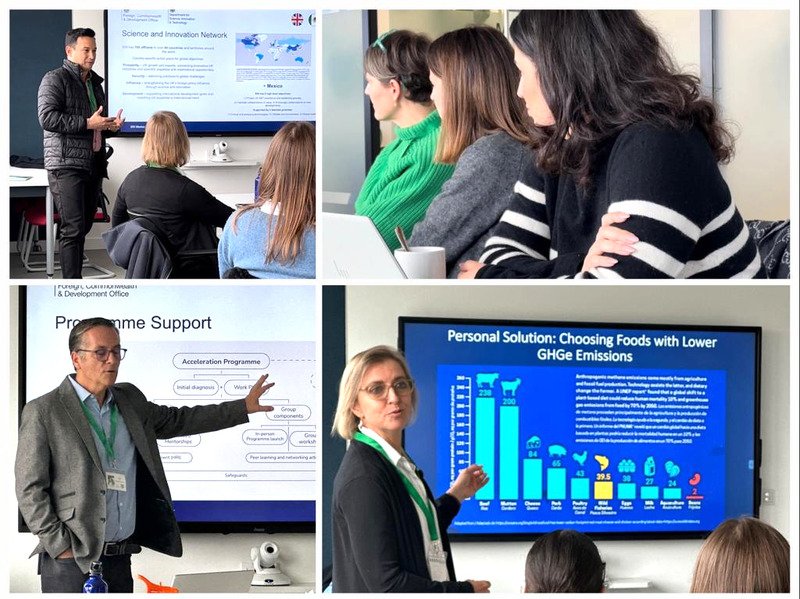
Photos: Melanie McField
- New Ventures supported the farm to acquire a debt extension and continue to look for investment funds to raise funds for the upgrade of the technology to a fully-recirculating water system.
Photo: Fundación Albatros
The work carried out in 2023 has been made possible by the support of donors and partners.
We are grateful for their trust and continued generosity.
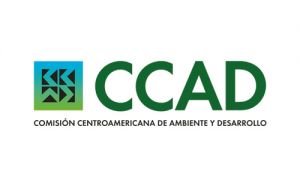
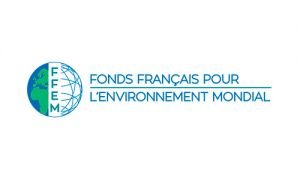

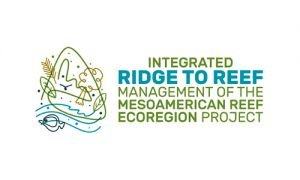
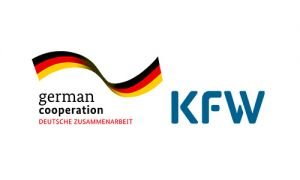
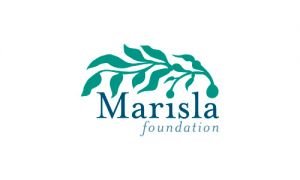
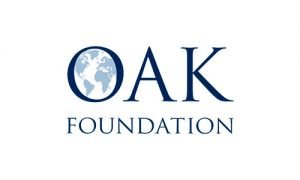
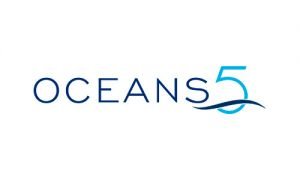
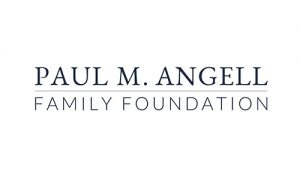





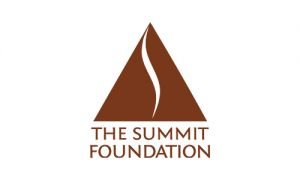
Photo: Fundación Albatros
Followers on Facebook
Followers on Instagram
Followers on Twitter
Views on YouTube
Followers on LinkedIn

Address:
22 avenida 0-59, Zona 15 Vista Hermosa II
Guatemala, C.A. 01015
Phone: +(502) 2369-3188
Phone: +(502) 2369-1978
Email: info@marfund.org
Website: https://marfund.org/

